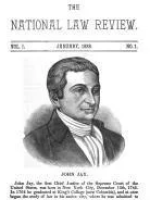The Supreme Court has announced a ruling in Murphy v. National Collegiate Athletic Association, No. 16-476, striking down the federal Professional and Amateur Sports Protection Act of 1992 and paving the way for sports betting across the nation.
The law, Professional and Amateur Sports Protection Act of 1992 (PASPA) allowed exemptions for Nevada, where sports betting has long been legal. Other states had the option to be exempted, but they did not act in time.
The story begins in New Jersey, where a struggling Atlantic City inspired New Jersey voters to amend their state constitution to allow for sports betting, and the New Jersey legislature quickly passed a law legalizing sports betting across the state. Major sports organizations, including the NCAA, the NFL, the NBA, the NHL and MLB sued--and won--to stop sports betting in New Jersey. Even after the state amended the legislation to only allow sports betting at racetracks and casinos, the sports organizations sued again and the activity was stopped.
The case was brought under the Tenth Amendment and the Commerce Clause of the Constitution, basically asking if the federal government can control state lawmaking. The Supreme Court ruled that the federal law against sports betting constituted unconstitutional commandeering, where the federal government attempts to use state resources to achieve federal objectives. While the federal government is the highest authority, it cannot compel states to act against their own best interest to accomplish the federal government’s objectives. Sandra Day O’Connor wrote for the court’s majority opinion in New York v. United States in 1992 that, “[T] he Constitution has never been understood to confer upon Congress the ability to require the States to govern according to Congress’ instructions.”
This decision is likely to have a huge impact on sports betting and states across the nation are now free to pursue sports betting as an industry, now that the ban is lifted. This provides many states with a lucrative industry to nurture--and tax--within their borders, as Americans are estimated to place bets in the hundreds of billions of dollars, all of that illegal.
The National Law Review has a variety of legal analysis available on this decision; you can see a sampling below. For more entertainment and sports legal analysis, check out our sports law page.
Now that PAPSA Has Fallen, What Does This Mean for the States?
Time to Place Your Bets? Key Things to Know about the Supreme Court Sports Gambling Decision




 />i
/>i

